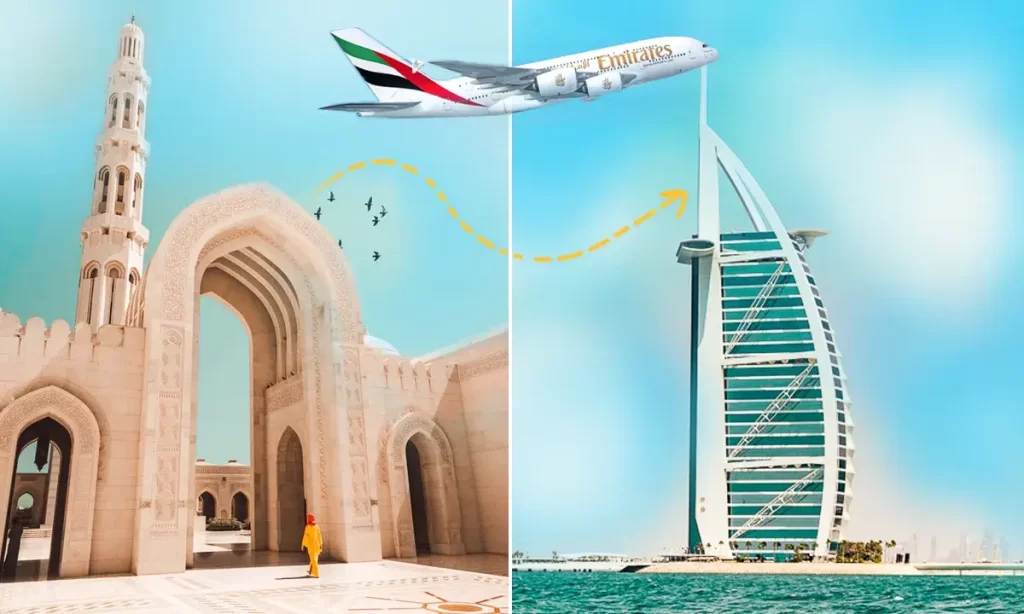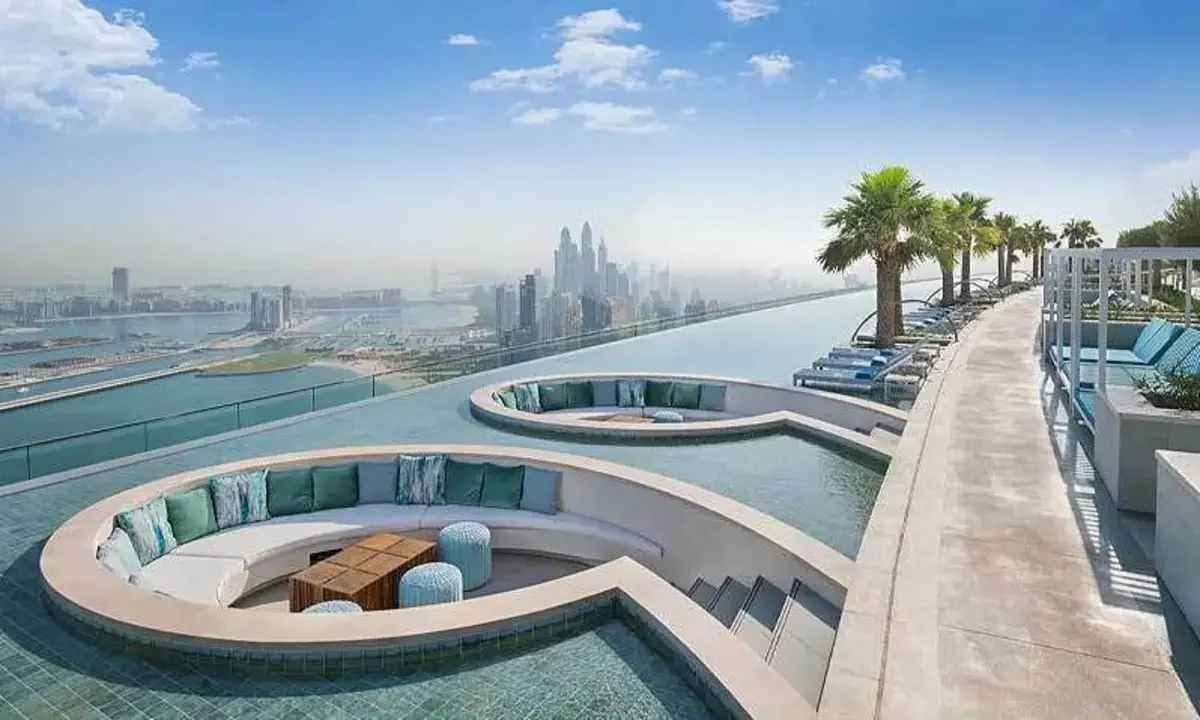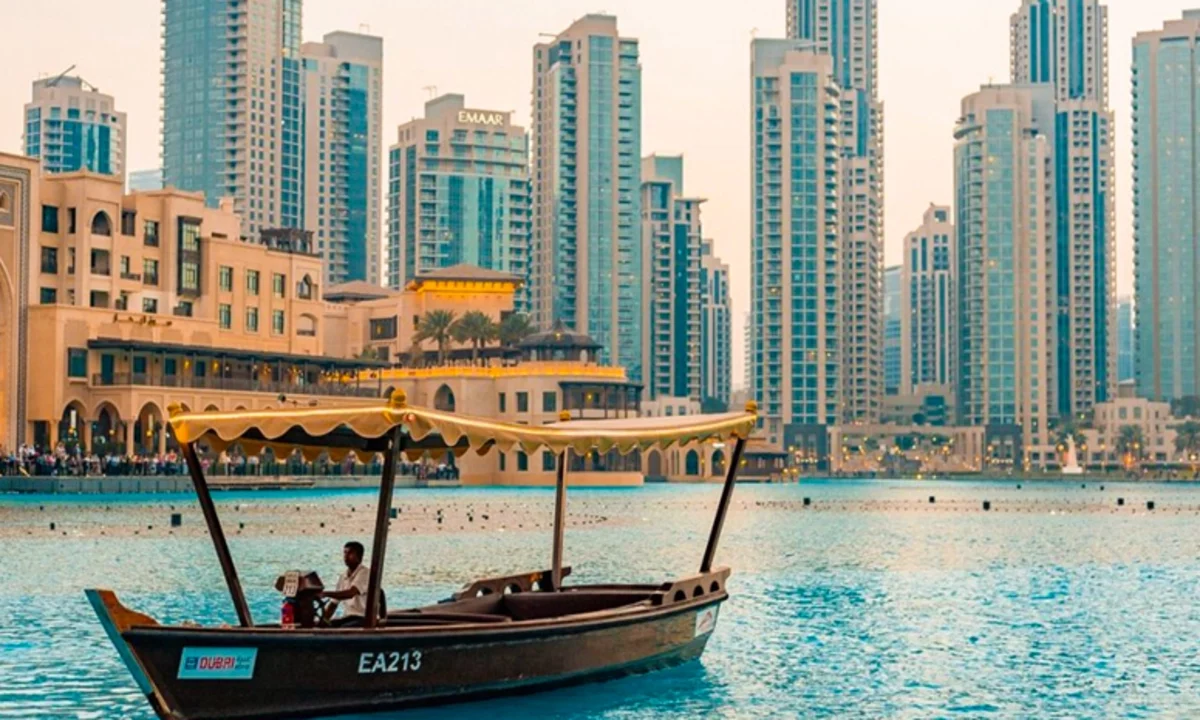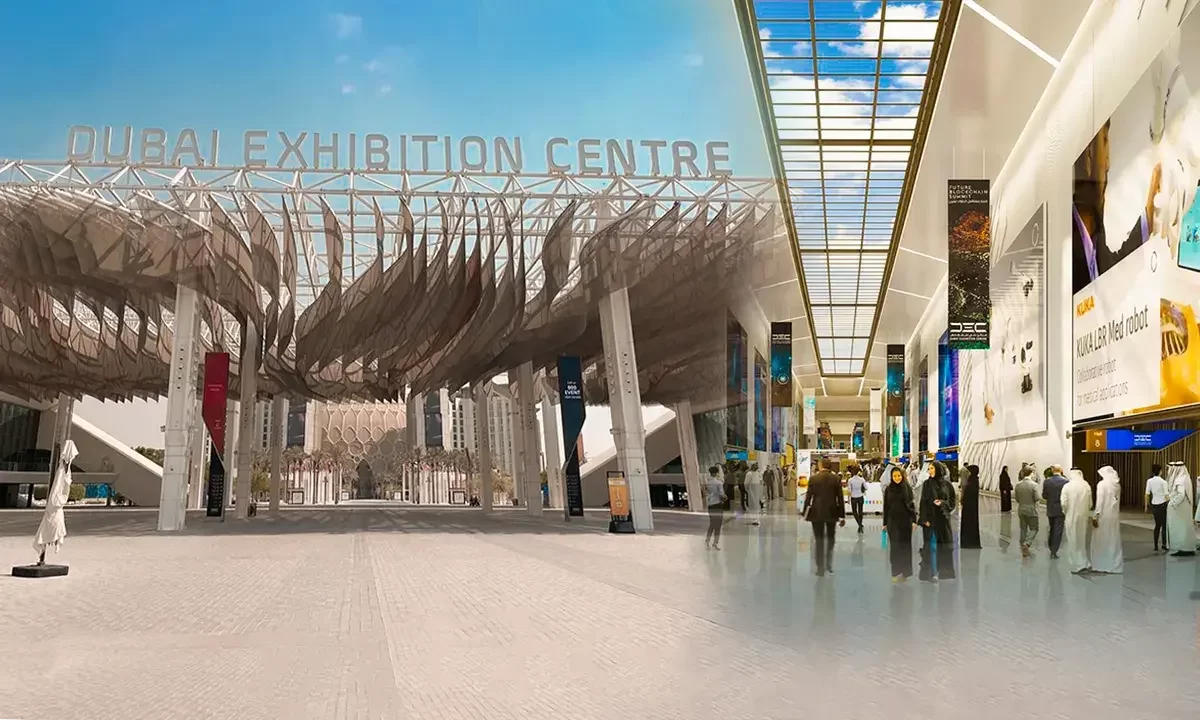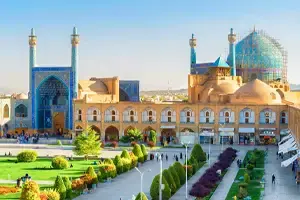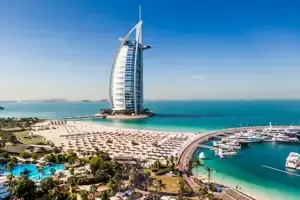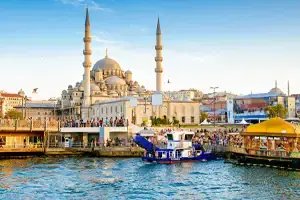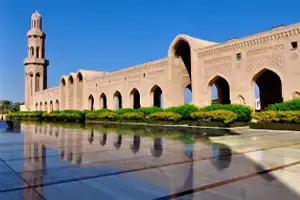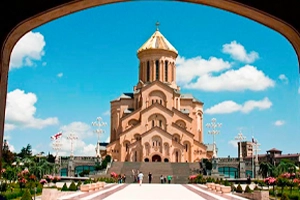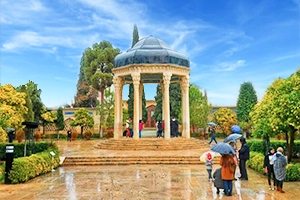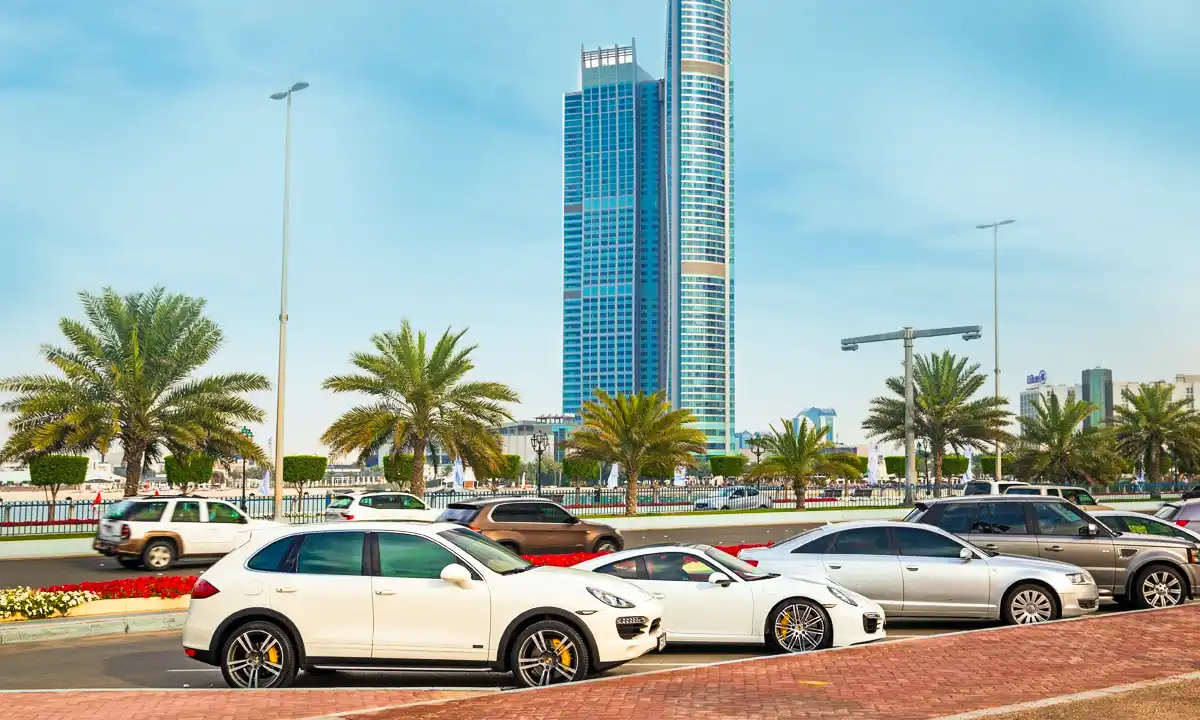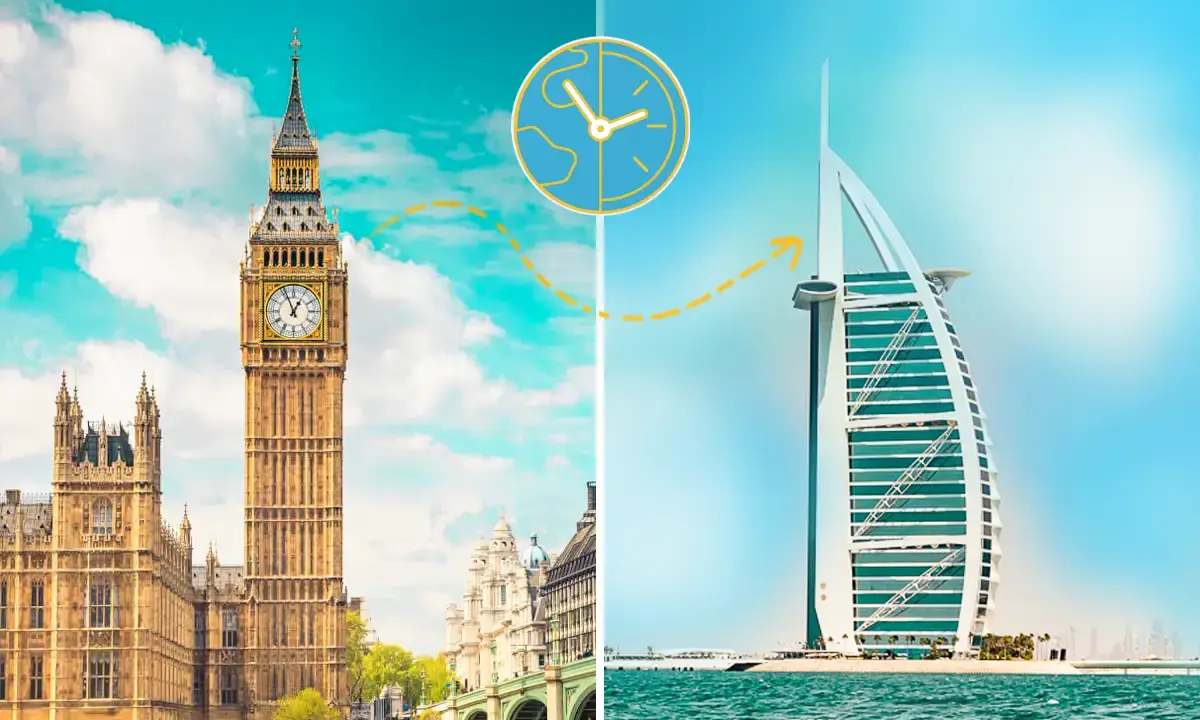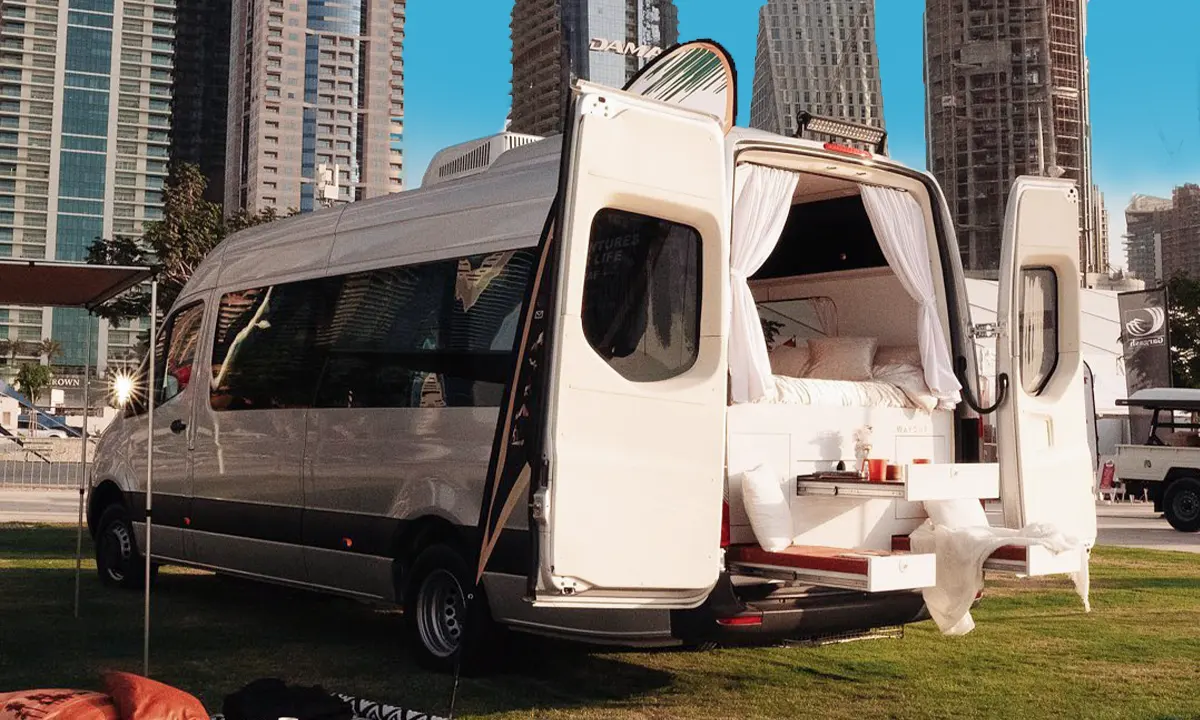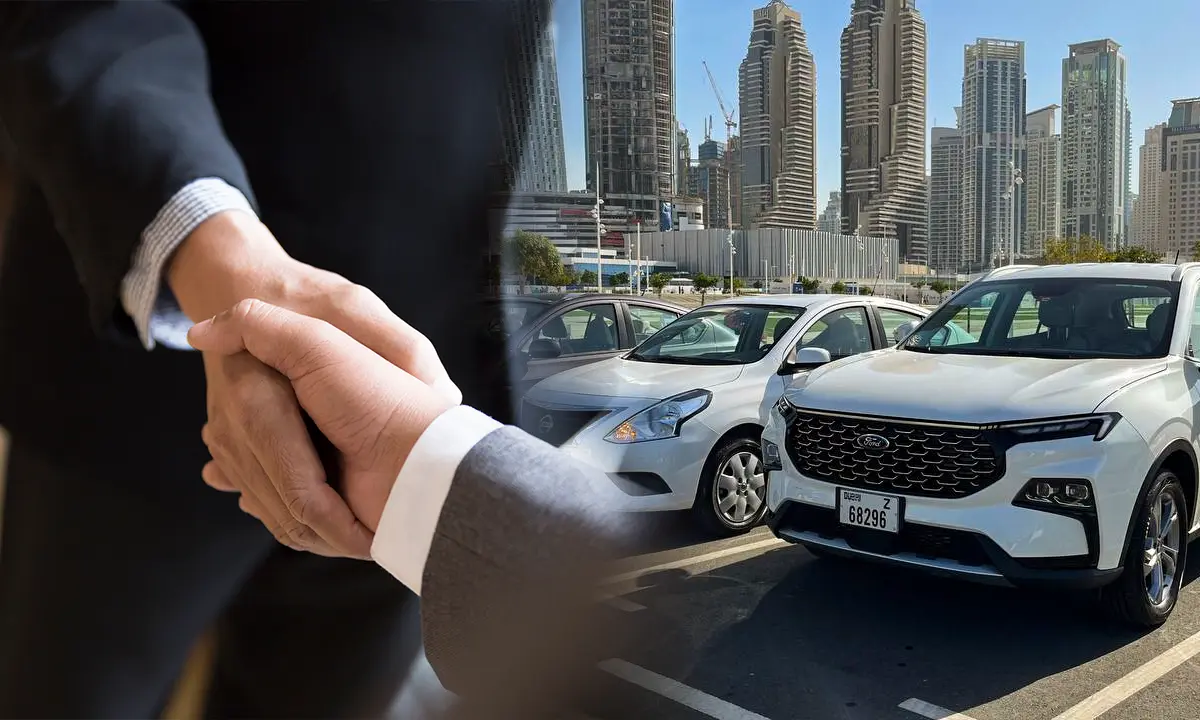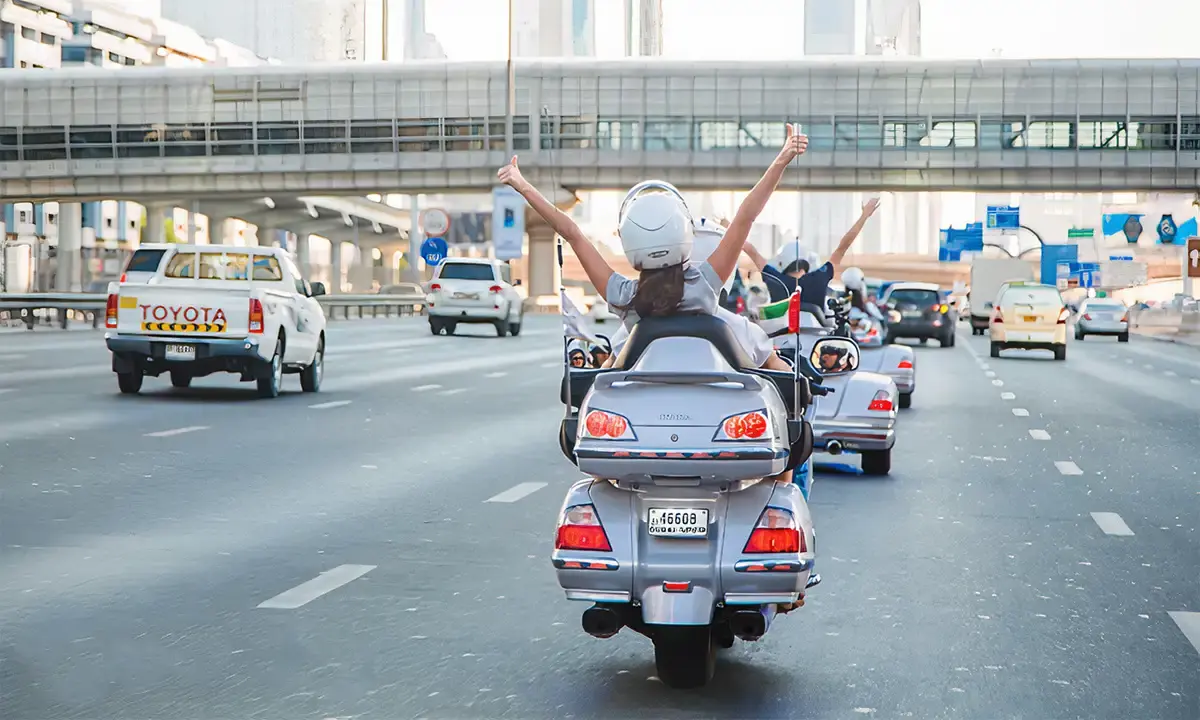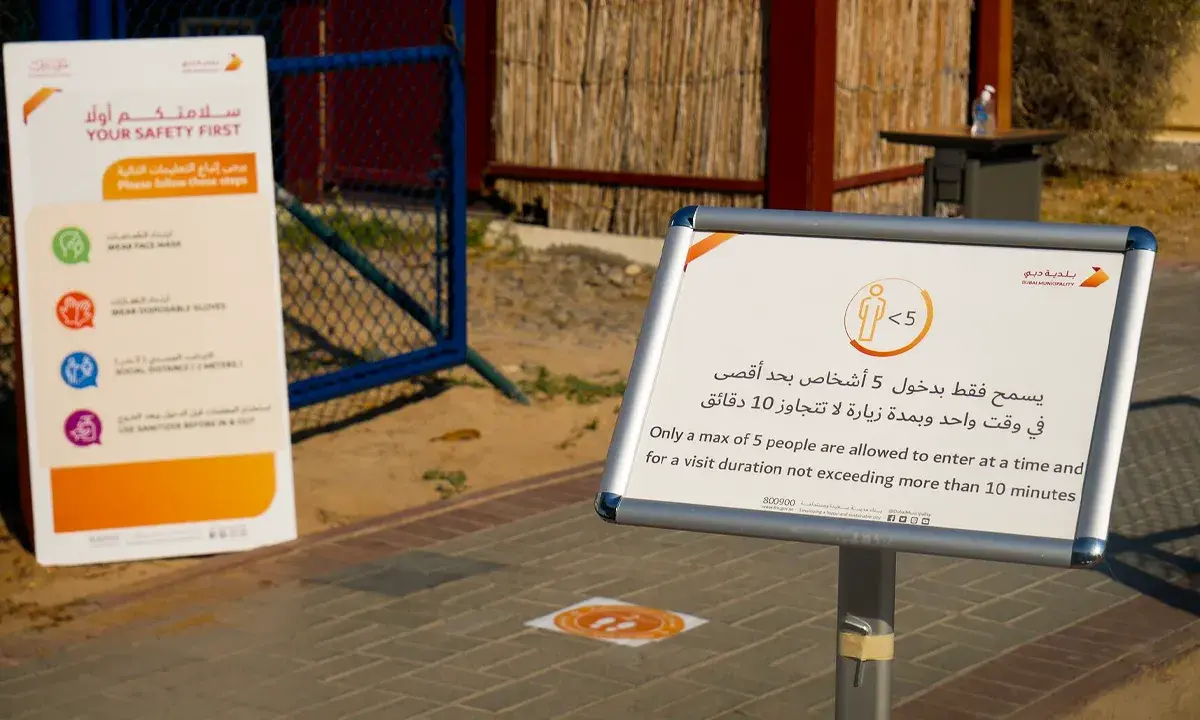Transitioning to a different destination, Germany to Dubai brings a new set of considerations for travelers. Dubai, renowned for its splendid architecture, vast shopping centers, and vibrant markets, continues to allure German tourists. As you embark on your journey from the heart of Europe to the Middle Eastern gem, some key insights are crucial. The city is celebrated for its towering skyscrapers, opulent amenities, and picturesque beaches, making it a prime attraction for many German visitors annually. If you’re contemplating a trip from Germany to Dubai, here’s the essential information you’ll need to be well-prepared.
Table of Contents
Visa Requirements for German Citizens Traveling to Dubai:
For German travelers heading to Dubai, the visa requirements are quite straightforward. German citizens do not need a visa to enter Dubai for stays of up to 30 days. However, if your visit extends beyond this period, you will need to apply for a visa in advance. You can conveniently apply for a visa online or at the nearest embassy or consulate.
Visa-on-Arrival for German Nationals:
If you happen to be traveling with German nationals, they have the privilege of obtaining a visa-on-arrival at Dubai International Airport. The visa fee for German citizens is set at 350 AED.
Visa Extension:
Should you find the need to extend your stay in Dubai, the process is manageable. Simply visit the General Directorate of Residency and Foreigners Affairs (GDRFA) in Dubai, where you can process your visa extension. The fee for this extension typically amounts to 600 AED.
General Tips:
- When arriving in Dubai, have your passport and a valid return ticket ready for inspection.
- Dubai values modest attire in public places, so dressing respectfully is essential.
- Keep in mind that alcohol is only available in licensed establishments in Dubai.
- Public displays of affection are generally not acceptable in the city.
- It’s crucial to be aware that photographing government buildings and military installations is strictly prohibited.
Safety Guidelines:
- Be vigilant about your surroundings and take precautions against petty theft, especially in crowded areas.
- Avoid walking alone at night, especially in unfamiliar areas.
- Show respect for local customs and traditions.
- Dress modestly, especially when visiting religious sites.
- Consume bottled water and avoid raw fruits and vegetables.
- Stay mindful of the heat and take measures to prevent dehydration and heatstroke.
Additional Tips for German Nationals:
- Consider purchasing travel insurance before your trip to Dubai.
- Ensure your passport has at least six months of validity beyond your planned departure date.
- Have a confirmed return ticket to demonstrate your intention to leave Dubai within the allotted timeframe.
- While proof of sufficient funds is not required for German citizens entering Dubai, it’s wise to be prepared for financial contingencies.
- Upon arrival, be prepared for the possibility of being photographed and fingerprinted.
I hope this information is helpful for your journey. Wishing you a safe and enjoyable trip to Dubai!
Flights from Germany to Dubai
Travelers from Germany have a plethora of options when it comes to flights to Dubai. Here’s a breakdown of key information to help you plan your journey:
Airlines Offering Direct Flights
Several airlines offer direct flights from Germany to Dubai. These include:
- Emirates
- Etihad Airways
- Lufthansa
- Qatar Airways
Flight Duration
The average flight duration for journeys from Germany to Dubai is approximately 6 hours and 30 minutes.
Airports
When departing from Germany, you can choose from various airports for your journey to Dubai, such as:
- Frankfurt Airport (FRA)
- Munich Airport (MUC)
- Berlin Brandenburg Airport (BER)
- Düsseldorf Airport (DUS)
Upon arriving in Dubai, you’ll likely land at one of the following airports:
- Dubai International Airport (DXB)
- Al Maktoum International Airport (DWC)
Booking and Prices
Flight prices can fluctuate based on airline, season, and booking date. As a general estimate, you can expect to pay around AED 2,000 for a one-way ticket and AED 4,000 for a round-trip ticket.
To book your flight from Germany to Dubai, you can visit the airline’s official website or utilize popular flight search engines like Google Flights or Skyscanner.
Here are some tips to help you find the best deals on flights from Germany to Dubai:
- Be flexible with your travel dates and consider avoiding peak seasons like December-January and July-August.
- Booking your tickets well in advance increases your chances of securing a favorable deal.
- Compare prices from different airlines and travel agencies to find the most competitive offer.
- Additionally, you may want to consider flying into Al Maktoum International Airport, which is often less crowded and may have lower landing fees, potentially leading to more affordable ticket prices.
Currency in Dubai
The United Arab Emirates Dirham (AED) Dubai, a prominent cosmopolitan city within the United Arab Emirates (UAE), predominantly employs the United Arab Emirates Dirham, commonly abbreviated as AED.
Currency Denominations
Coins are accessible in denominations of 5, 10, 25, 50 fils, and 1 Dirham. Notably, 100 fils equate to 1 Dirham. Banknotes in regular circulation encompass 5, 10, 20, 50, 100, 200, 500, and 1000 Dirhams.
Usage of Credit and Debit Cards
Dubai boasts a contemporary banking system, rendering most major credit and debit cards, including Visa, Mastercard, and American Express, widely accepted in hotels, shopping malls, and upscale dining establishments.
Automated Teller Machines (ATMs) are ubiquitously available throughout the city, ranging from shopping complexes to metro stations and even some convenience stores.
Currency Exchange Services
Although currency exchange services are accessible at the airport, seeking out a local bank or dedicated currency exchange service in the city can often yield more favorable exchange rates. It’s worth noting that several hotels offer currency exchange services, but rates may exhibit variances.
Cash and Transactions in Local Markets
Exploration of traditional markets or souks such as the Gold Souk or Spice Souk can be enhanced with cash, especially when bargaining is part of the experience. In older parts of town, certain smaller eateries may only accept cash, making cash transactions a practical necessity.
Digital Payments and Mobile Wallets
With the advent of technology, the acceptance of digital payments, including mobile wallets and contactless transactions, has witnessed a significant increase. Many establishments now accommodate these modern payment methods.
Tipping Etiquette
Tipping is customary, although not obligatory, in Dubai. When dining in restaurants, it’s customary to leave a tip of approximately 10-15% for good service. For services such as taxi rides or assistance from bellboys, offering a modest tip is appreciated but not mandatory.
Effective Budgeting
Dubai caters to a wide range of budgets, offering luxurious experiences in iconic landmarks like the Burj Al Arab and cost-effective dining options in areas such as Al Karama. It’s advisable to budget your expenses in alignment with your specific plans and preferences.
In summary, Dubai’s embrace of electronic and card transactions is evident, yet it remains prudent to have a supply of UAE Dirhams, particularly when delving into the city’s rich and traditional culture. Staying informed about prevailing exchange rates and notifying your bank about your travel dates can help ensure smooth card transactions abroad.
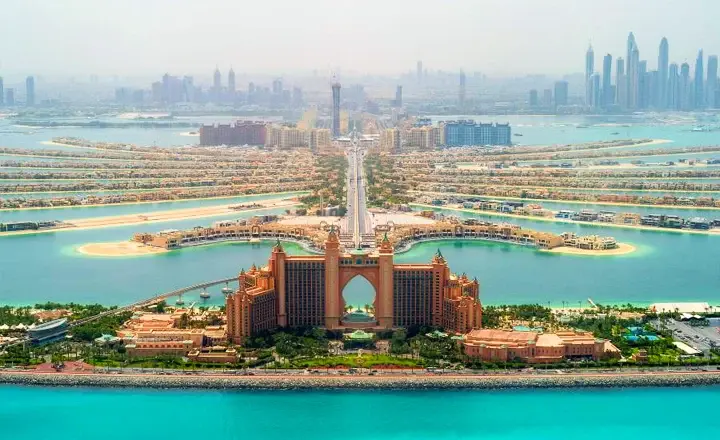
The climate in Dubai to travel from Germany:
Dubai’s climate, situated within the Arabian Desert, falls into the category of a tropical desert climate, characterized by high temperatures, especially during the summer season, and minimal annual rainfall. Here’s a closer examination of Dubai’s climate:
Summer Season (June to September):
- Temperature: Dubai experiences scorching summer weather with daytime temperatures frequently surpassing 40°C (104°F) and occasionally reaching 45°C (113°F).
- Humidity: The coastal areas can have elevated humidity levels, amplifying the perceived heat.
- Activities: Due to the intense heat, outdoor activities are restricted during the hottest hours. However, Dubai is well-equipped for summer, with many places like public transport, shopping malls, and hotels being air-conditioned. Tourists often explore indoor attractions during this time, such as the Dubai Mall, Ski Dubai, and the Dubai Aquarium.
Winter Season (October to March):
- Temperature: Winters in Dubai are mild and pleasant, with daytime temperatures ranging from 24°C (75°F) to 30°C (86°F). Nighttime temperatures can drop slightly, particularly in the desert regions.
- Rainfall: Although rain is infrequent in Dubai, the winter months may witness sporadic and brief rainfall.
- Activities: This is the high tourist season, offering ideal weather for outdoor activities like desert safaris, beach excursions, and open-air concerts.
Transitional Months (April, May, October):
- Temperature: These months serve as transitions between the scorching summers and milder winters. Temperatures begin to rise in April and May and decrease in October.
- Activities: Travelers can still enjoy most outdoor activities, but it’s advisable to plan them during the cooler parts of the day.
Useful Tips for Travelers
- Attire: Light and breathable clothing is recommended for the summer season, while during winter, it’s advisable to carry a light sweater or jacket for cooler evenings.
- Hydration: Given the heat, staying well-hydrated is essential. It’s a good practice to carry a water bottle.
- Sun Protection: Utilize sunscreen, sunglasses, hats, or caps to shield yourself from the strong sun.
In summary, Dubai’s climate is primarily characterized by hot and arid conditions, but its winter months provide a more temperate environment conducive to exploration and outdoor adventures. Regardless of when you choose to visit, Dubai offers a wide range of climate-adapted activities to ensure a memorable experience.
Language in Dubai: A Fusion of Tradition and Modernity
Dubai, the gleaming gem of the Middle East, is renowned not just for its impressive skyscrapers and opulent lifestyle, but also for its rich tapestry of cultures and languages. Let’s delve deeper into the linguistic makeup of the city, essential knowledge for German travelers heading to Dubai:
Arabic
The Official Language Arabic holds a special place in Dubai as the official language of the UAE. It’s utilized in government communications, road signage, official paperwork, and local media. While the Arabic script may appear intricate to non-Arabic speakers, it is a vital part of the region’s cultural heritage.
English
The Universal Language Dubai, being a global business hub and a melting pot of nationalities, has adopted English as the de facto universal language. It’s commonly spoken in business establishments, shopping centers, hotels, and restaurants. Most signage in Dubai, including road signs and information boards, is bilingual, featuring both Arabic and English.
Diverse Population, Diverse Languages With more than 200 nationalities making Dubai their home, the city resonates with a symphony of languages. Strolling the streets, you’ll frequently hear Tagalog, Urdu, Hindi, Bengali, German, Chinese, and various other languages. The city’s populace is a mosaic of cultures and tongues, primarily due to its expatriate residents.
Learning Basic Arabic
Learning Basic Arabic While not imperative for navigating Dubai, acquiring a few fundamental Arabic phrases can be a gratifying experience. It not only aids in immersing oneself in the local culture but is also a sign of respect often appreciated by locals. Useful expressions include:
- Salam (سلام) – Hello
- Shukran (شكرا) – Thank you
- Ma’assalama (مع السلامة) – Goodbye
- Afwan (عفوا) – You’re welcome
Language and Hospitality
Language and Hospitality Dubai is renowned for its warm hospitality. Even if you stumble over your Arabic phrases, your efforts are likely to be met with a smile and an appreciative nod. It’s the gesture and the desire to connect that matter most.
Language Learning Opportunities
Language Learning Opportunities For those planning an extended stay in Dubai and have a keen interest in delving deeper into the Arabic language, numerous institutes offer language courses. Whether it’s for business, travel, or personal enrichment, opportunities to learn abound.
In conclusion, Dubai’s linguistic tapestry mirrors its lively and diverse population. While Arabic remains central to its identity, the city’s international character ensures that language is never a hindrance for visitors. Whether you’re dining at a restaurant, shopping at a mall, or wandering the charming alleys of a traditional souk, in Dubai, language is more about forging connections than mere words.
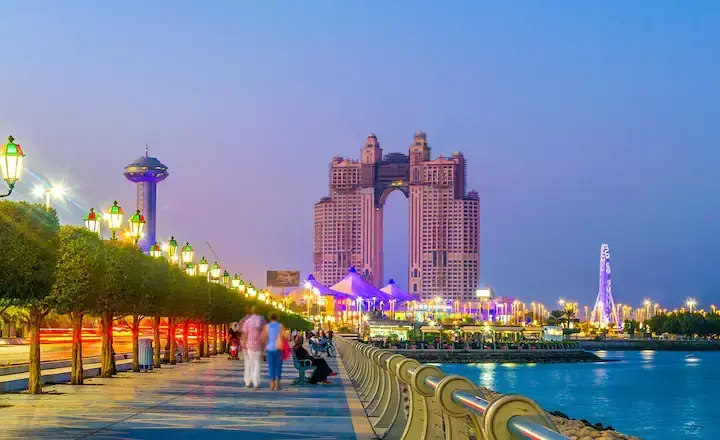
Cultural Respect in Dubai: Navigating Tradition in a Modern Urban Center
Prior to embarking on a journey from Germany to Dubai, it’s essential to acquaint oneself with the city’s culture. Dubai, characterized by its towering skyscrapers, futuristic architecture, and lavish resorts, often appears as a city from the future. However, beneath this ultra-modern veneer, it upholds deep-rooted Islamic culture and Emirati traditions. Here’s how to navigate Dubai with cultural sensitivity and consideration:
Dress Code
Prioritize Modesty Dubai is relatively more liberal than some other Middle Eastern cities, but adhering to modest attire is a gesture of respect, especially when visiting mosques, traditional neighborhoods, or government establishments. For women, wearing knee-length dresses or skirts and shoulder-covered tops is advisable. Carrying a scarf or shawl to drape over the shoulders when necessary is a prudent practice. Men are encouraged to refrain from wearing shorts and sleeveless shirts in religious or traditional locations, opting for long trousers and shirts or T-shirts.
Public Displays of Affection
Exercise Restraint While holding hands is generally acceptable for married couples, public displays of affection such as hugging or kissing are discouraged and best avoided in public spaces.
Ramadan
A Sacred Month of Fasting During Ramadan, Muslims fast from dawn until sunset, and it’s crucial to show respect for this practice. Activities like eating, drinking, smoking, or chewing gum in public during daylight hours should be avoided, as they could be considered offensive. Many eateries remain closed during the day but reopen at sunset for Iftar, the evening meal that breaks the fast. Nights during Ramadan are marked by special prayers, meals, and gatherings, offering a beautiful opportunity to experience Emirati culture, provided one maintains a respectful demeanor.
Alcohol Consumption
Understand the Guidelines Alcohol is available in licensed hotels, bars, and private clubs. However, consuming alcohol in public places or becoming publicly intoxicated is illegal and may lead to fines or imprisonment.
Language
Employ Considerate Communication Using offensive language, making rude gestures, or engaging in public arguments can result in significant fines or deportation. It’s crucial to communicate with respect and avoid sensitive topics in public conversations.
Visiting Mosques
Approach with Reverence Some mosques, such as the Jumeirah Mosque, welcome non-Muslim visitors. When visiting, it’s important to dress appropriately, remove your shoes before entering, and adhere to any provided guidelines.
Photography
Seek Permission Before Capturing Dubai offers numerous opportunities for photography, but it’s always prudent to request permission before taking photos of individuals, particularly Emirati women. Additionally, exercise caution when photographing government buildings, airports, and military installations.
Gender Interactions
Be Mindful It’s advisable for men to wait for an Emirati woman to initiate a handshake unless introduced. Some women may opt not to shake hands with men due to religious reasons.
In summary, while Dubai boasts a diverse cultural landscape and maintains a relatively open environment, visitors should remain mindful of and respectful of its cultural intricacies. By doing so, not only will you ensure a harmonious visit, but you’ll also gain a deeper appreciation for the city’s intricate blend of tradition and modernity.
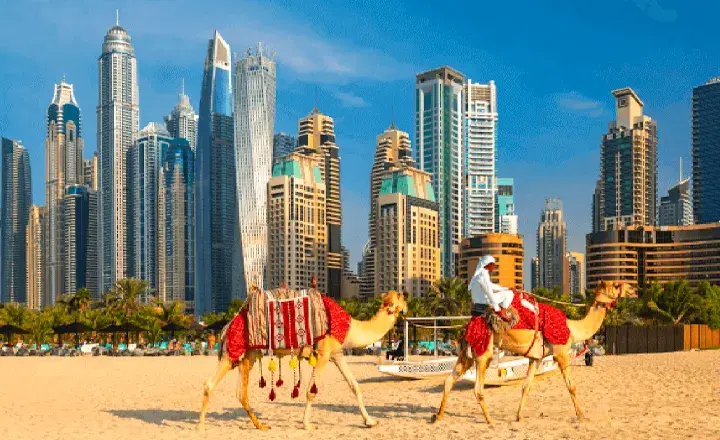
Transport in Dubai – Essential Information for German Tourists
When you journey to Dubai from Germany, it’s crucial to be well-informed about the most convenient ways to reach your desired destinations.
Taxi
- Availability: Taxis in Dubai are abundant, easily recognizable with their cream-colored exteriors, and can be hailed off the street or prearranged through a call or app.
- Safety: They are considered secure, and all have meters, ensuring transparency in pricing.
- Ladies Taxi: Dubai also offers a distinct ‘pink taxi service’ exclusively for female passengers, operated by female drivers.
Dubai Metro
- Coverage: The Dubai Metro, introduced in 2009, is a cutting-edge, driverless, fully automated rail system. It primarily consists of two lines – the Red Line and the Green Line, linking major tourist attractions and business centers.
- Efficiency: Trains are punctual, clean, and efficient, making them one of the most preferred modes of transportation.
- Nol Card: To utilize the metro, you would require a Nol Card, which can also be used on buses, trams, and water buses.
Buses and Trams
- Buses: Dubai’s bus network is extensive, connecting various parts of the city. It’s a more economical means of travel but can be slower due to traffic.
- Trams: The Dubai Tram operates in a loop around the Marina and JBR area, offering an easy way to explore these regions.
Car Rentals
- Options: Dubai hosts numerous car rental agencies, offering a range from economy cars to luxury vehicles.
- Driving: While Dubai’s roads are well-maintained, and signage is clear, driving can be intimidating for newcomers due to the fast-paced nature of local drivers.
- Parking: Most areas provide ample parking spaces, but always ensure you park in designated zones to avoid fines. rent a car in Dubai can provide a convenient and enjoyable travel experience.
Water Transport
- Abras: Traditional wooden boats known as ‘abras’ offer a distinctive way to travel between Deira and Bur Dubai, providing a scenic view of the city.
- Water Taxis & Ferries: These modern, air-conditioned boats link various parts of the city.
Biking
Bike Stations: Dubai has been actively promoting cycling, with dedicated bike paths in specific areas. You can rent bikes from various stations situated throughout the city.
Tips for Travelers
- Rush Hour: Traffic congestion is common during rush hours (7-9 am & 5-7 pm). Plan your travels accordingly.
- Public Etiquette: When using public transport, be considerate. There are designated seats for women, children, and the elderly. Avoid eating or drinking on the metro.
- Apps: Apps like RTA Dubai provide real-time information on public transportation, while navigation apps like Google Maps or Waze can guide you when driving.
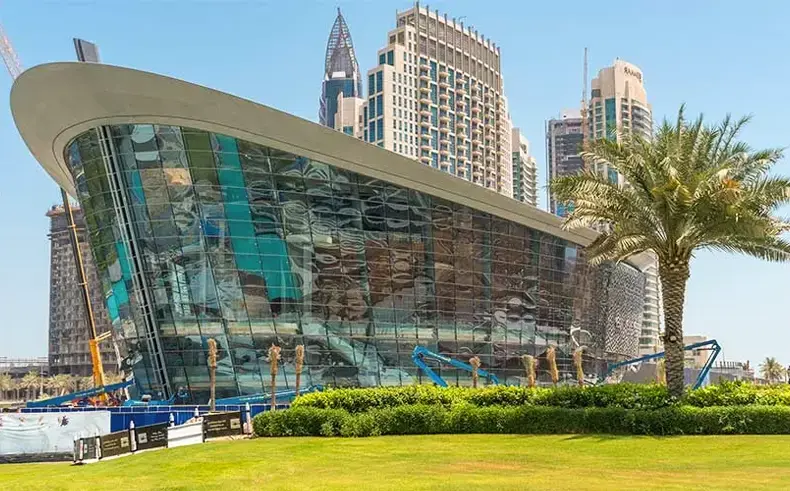
Comprehensive Information for German Tourists Visiting Dubai
Dubai has captured the hearts of many German tourists over time, thanks to its diverse attractions and a host of other factors.
Attractions in Dubai:
- Burj Khalifa: As the tallest building globally, reaching a height of 828 meters, the Burj Khalifa is a must-visit. Its observation decks on levels 124, 125, and 148 provide breathtaking panoramic views of the city.
- Dubai Creek: This saltwater estuary is a window to Dubai’s history and trading heritage. Traditional abra boats offer a glimpse into the city’s past as they navigate the creek.
- Dubai Mall: Among the world’s largest shopping malls, the Dubai Mall boasts over 1,200 shops, an ice rink, a massive aquarium, and an underwater zoo.
- Desert Safaris: The Dubai desert offers unforgettable experiences, including dune bashing, camel rides, and evenings filled with cultural performances and BBQ dinners.
- Dubai Fountain Show: Located in Burj Khalifa Lake, this captivating water, lights, and sound show is the world’s most extensive choreographed fountain system.
- Dubai Marina: This man-made canal city is a stunning urban landscape, featuring skyscrapers, yachts, and waterside restaurants.
- Al Fahidi Historic District: A meticulously restored area that provides a glimpse into Dubai’s architectural and historical past.
- Palm Jumeirah: An iconic artificial island known for its luxury resorts, waterfront apartments, and attractions like the Atlantis hotel.
- Dubai Opera: Situated in the heart of the city, Dubai Opera offers a diverse array of performances, ranging from operas and ballets to concerts.
Local SIM Card
- Service Providers: The primary telecom providers in Dubai are Etisalat and du.
- Tourist SIM: Both providers offer specialized tourist SIM cards with bundled offerings that encompass local and international calling minutes, SMS, and data.
- Where to Purchase: You can acquire these SIM cards at the airport, shopping malls, or authorized stores. Don’t forget to carry a valid ID for the registration process.
Safety in Dubai
- Crime Rate: Dubai boasts an exceptionally low crime rate. The police force is well-equipped and utilizes modern technology to ensure the safety of residents and tourists alike.
- Travel Precautions: Just like in any major city, it’s crucial to stay vigilant in crowded areas and refrain from leaving personal belongings unattended.
- Local Laws: Dubai’s legal framework is deeply rooted in Islamic traditions. Respecting these laws, especially regarding public behavior, dress code, and alcohol consumption, is essential.
- Emergency Number: In case of a police emergency, dial 999. It’s advisable to save local emergency numbers on your mobile phone.
- Medical Safety: Dubai offers world-class medical facilities, but it’s wise for tourists to have travel insurance that covers potential medical emergencies.
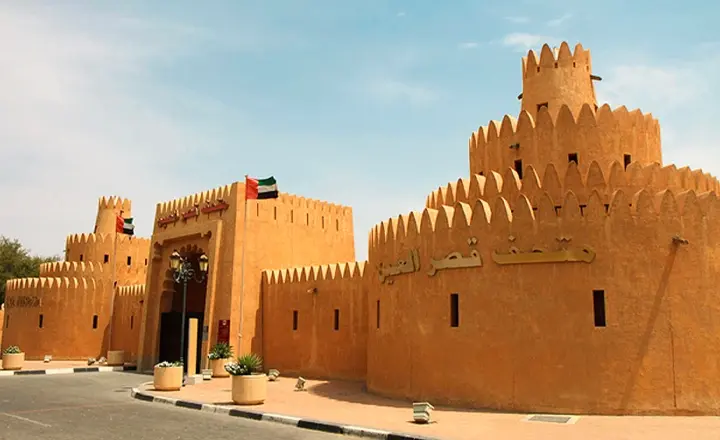
Last words
In summary, Dubai harmoniously combines its rich historical heritage with its forward-looking futuristic aspirations. With its strong commitment to safety and an abundance of attractions, it guarantees a rewarding adventure for German visitors. Whether you find yourself awestruck by the towering skyscrapers, immersing in local traditions, or exploring the expansive desert, Dubai assures an unforgettable journey.
Yes, but German citizens can benefit from a visa-on-arrival option upon their arrival in Dubai. This visa allows a 30-day stay and can be extended for an additional 30 days if necessary. However, it’s crucial to verify the latest visa regulations before planning your trip.
Dubai is an all-year-round destination, but many German tourists prefer the winter months (October to March) for their visit due to the milder temperatures. This period offers a pleasant escape from the colder German winter. The summer months (June to September) in Dubai can be extremely hot and may not be suitable for outdoor activities.
Yes, several airlines provide direct flights from significant German cities such as Frankfurt, Munich, Berlin, and Düsseldorf to Dubai. The flight duration from German cities to Dubai is typically around 6 hours and 30 minutes. Airlines like Emirates, Lufthansa, and Qatar Airways commonly operate on this route.
Dubai, despite its modernity, is deeply influenced by Islamic traditions. It’s recommended to dress modestly, particularly when visiting religious or traditional sites. During the holy month of Ramadan, be mindful of eating or drinking in public during daylight hours. Familiarizing oneself with local customs and etiquette is always a good idea to ensure a respectful and enjoyable visit.
